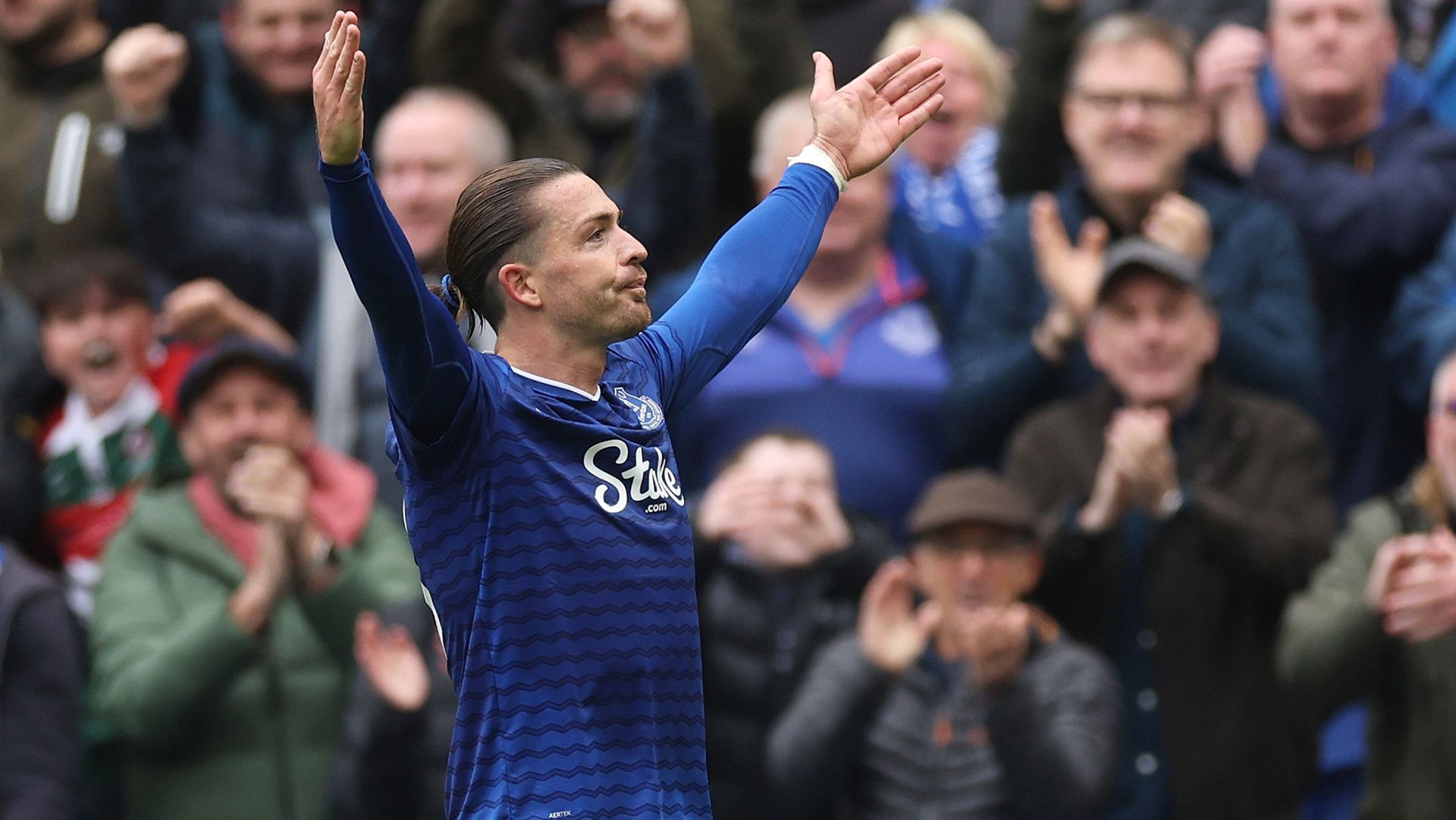It is fair to say that Jack Grealish's time at Manchester City did not go as well as he must've hoped. It is also fair to say that getting paid lots of money to win the Premier League several times over, and to have been a mainstay in a team that won the Champions League, is by no means some abject failure. Nevertheless, Grealish's last couple seasons with the Mancs have truly been bleak, with fewer and fewer appearances on the pitch and hardly any performances of the kind fans had come to adore him for. But at last Grealish has escaped Pep Guardiola's straitjacket, and has started to look like himself again.
One of the more intriguing moves of the summer was Grealish's loan to Everton. In a team with a manager accustomed to letting his attacking talents cook so long as they also agree to help on the defensive end, and surrounded by a supporting cast right in Grealish's Goldilocks zone—teammates good enough to amplify his talents but, unlike at City, not so good as to drown his out—the somehow-now-30-year-old looked well-positioned to recapture the form that made him one of the most entertaining English players of his generation. Sure enough, Grealish has been a star with the Toffees.
This had been true before Sunday's match against Crystal Palace, which wasn't even his best performance of the season, but it's impossible to see Grealish score a late game-winner—by transitive property, Everton now owns Liverpool's late-goal magic, taking it from Crystal Palace and handing the Eagles its first loss in 19 matches—and not feel like he has once again found himself.
OK, yes, it wasn't the most impressive goal Grealish will ever score; he was simply in the right place at the right time to deflect a clearance directly into the goal. But that itself instantiates the point. Grealish and Everton have joined up at the right place and the right time; the player provides the club a veritable star, or at least a player with star power, while the club provides the player a chance to become his best self. That game-winner was Grealish's fifth goal contribution of the season—four assists heading into Sunday, and now his first Everton goal—and Everton has nine goals for the season. Math isn't my strong suit, but creating or finishing more than half of your team's goals, especially a team that is in a surprising, pleasant-to-watch eighth place after years mired in the mucky end of the Premier League table, seems pretty good to me.
The goal was self-evidently important, but so were Grealish's four assists, coming in two matches where Everton really needed his creativity. The first pair of assists came against Brighton on Aug. 24. Though his second assist there was a mere lay-off for a James Garner rocket, his first showed what he can bring from wide left: He received a ball on a rapid play from Kiernan Dewsbury-Hall, dribbled smoothly into the box, then smashed a cross that hit Iliman Ndiaye right in stride for the opener. Six days later, Grealish chipped in another two assists as Everton snuck away from Molineux Stadium with a 3-2 win over Wolverhampton. In the seventh minute, he drifted from the center of the box until he found enough open space to receive a cross. He then headed it centrally, allowing Beto to latch onto it and score Everton's opener. Early in the second half, Grealish once again found himself in space after Everton won the ball back in the Wolves half, and connected with a nifty run by Dewsbury-Hall with a defense-breaking pass that his teammate then blasted home.
This is Grealish at his best. He's not the fastest player, but he's always looking for space and opportunity, the same instinct that had him in the right spot for the Crystal Palace winner. For the season, Grealish has been Everton's best player, a passing machine that is less focused on maintaining possession and more on taking the risks that lead to the big rewards; he leads the team in key passes per game, and he's second only to Ndiaye on dribbles completed. He's also getting fouled almost twice as frequently as anyone else on Everton, a sign that defenses are locked in on him as the Toffees' main threat. Grealish is a plug-and-play playmaker, and so far, he hasn't missed a beat despite moving down the table.
To me, this sounds like a player who would be useful for England to have on its international roster, but that's not the plan for Three Lions manager Thomas Tuchel, at least not right now. Soccer is heading into an international break this week, and Grealish did not receive a call-up. In a sense, it's understandable. Though Grealish has started his Everton tenure on fire, he's been lacking productivity for long enough that Tuchel might prefer younger or more proven players in the run-up to next summer's World Cup.
But I wouldn't count out Grealish's chances of earning a spot in England's World Cup squad. While he did make the England side at City, moving to Everton has freed him up to make his case that he should feature as a key part of England's hopes to lift its first World Cup in 60 years, even if it means doing so as an attacking super sub. Everton offers him a perfect showcase for his skills in a World Cup year, and as long as he can stay healthy—he's not an ironman, but also not particularly injury prone, only missing 15 matches across four seasons at City—and continues producing at a high level, Tuchel might have no choice but to give the lad a chance. Seven matches into this season, Grealish is reminding everyone, perhaps even himself, that he's talented enough to demand a second look.






